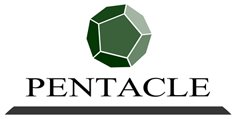Friday, 21 February 2014
What’s it like using QUBE?
To read the first part of this series, click here.
Using QUBE, like anything, takes a short period of adjustment. Dayner Proudfoot, PR and marketing manager, Association for Project Management (APM), takes up the story: "Using a virtual environment can feel a little bit peculiar to start with, but we soon got used to it.
“With the help of a quick but thorough orientation”, adds Proudfoot, “we started to feel that using virtual technology to meet and work together in small groups was a really good and effective way to collaborate.” The consensus was that for a virtual conference to succeed, it needed to be planned virtually. Owain Wilson, Web and Media Manager, APM, agrees: “Regular meetings (we called them ’DrumBeetsTM’) are all absolutely vital to keep the project going – when you meet more regularly, it really helps to keep things moving along.”
A different working environment also throws up different ways of working together, ways that were to prove more effective. QUBE uses tools and techniques designed by Pentacle to make the most of these benefits. The Pentacle tools are described by Proudfoot as: “Light touch, very iterative and fast moving.” One example of these techniques was “Hopes&FearsTM”, in which participants are able to express what they hope will be the outcome of a meeting - and what they honestly fear may result if the meeting goes badly. Too many meetings face-to-face are held in a confrontational format, where a physical presence and entrenched positions can only create feelings of intimidation and victimisation. Expressing hopes and fears, far from bringing unwanted emotions to the table, has the opposite effect in a virtual environment. Rather than reinforcing entrenched positions, it helps participants to realise that perhaps they have a more common agenda than perhaps might have been first realised. Wilson puts it well: “I think ‘Hopes&FearsTM’ produced more relaxed meetings.”
The experience of Pentacle tutors of working in a virtual environment was another crucial factor to more effective planning and meetings. Proudfoot was impressed by the skills of facilitation: “Facilitation in a virtual environment should not be heavy-handed or bureaucratic in any way. At its best, it encourages a mix of opinions, leading to focused decisions in meetings.” And best practice in a virtual environment has beneficial spillover effects in the real world. Wilson argues that Pentacle’s skill in facilitating a virtual environment lies in the way they develop conversations where people are not physically in each other’s presence: “It feels a bit like a magic recipe for pastry. All the ingredients are jumbled up in a way no one has ever tried. We make mistakes along the way but somehow what comes out tastes delicious. And in the process we learn together and laugh together.”
Next week: using QUBE as the conference approaches.
Monday, 17 February 2014
Getting to ZERO: A World in Which All Projects Succeed
 Would you like to be part of a world where every project succeeds? Of course you would. The Association for Project Management (APM) certainly does - and they know a thing or two about the subject.
Would you like to be part of a world where every project succeeds? Of course you would. The Association for Project Management (APM) certainly does - and they know a thing or two about the subject.Pentacle the Virtual Business School, led by Prof Eddie Obeng, joined forces with APM in 2013 to host a conference with an unashamedly idealistic objective - to work out how to eliminate failed projects altogether. Their aim was effectively to get to ZERO – or create a world in which all projects succeed.
To put together the conference was a six-month project in itself, starting in mid-April 2013. And so this and subsequent blogposts chart the attempts of APM and Pentacle to plan, organise, host and deliver a one-day conference in mid-October 2013.
The reality for APM and its 20,000 members is that: –
• Many projects fail;
• Successful practice in project management is frequently ignored; and
• Professional project management skills are in short supply.
Part of the reason for project failure comes down to the flaws of traditional working environments. So APM and Pentacle agreed to try something radical – to conduct all elements of preparation for and the hosting of the conference itself within QUBE - a revolutionary, completely immersive, virtual environment for business. QUBE is a highly effective way for business people to go online to run their companies via board, planning and delivery meetings and in the process to innovate, collaborate and have fun. It’s like a company headquarters on the web, with new ways of sharing ideas plus great tools and techniques to help get things done.
APM and Pentacle decided to start by holding regular planning meetings, called Drumbeats, in this virtual environment. They enjoyed some obvious anticipated benefits from using QUBE - the two organisations were based in different locations and this saved on travel time – but quickly discovered other significant gains. The conventional business wisdom is that face-to-face meetings are preferable and more effective than telephone or video conferencing, but the working group quickly discovered that there were aspects to virtual working in QUBE that created more productive meetings, with the virtual environment helping to focus attention to the task at hand and with few distractions. This helped the team move more quickly and effectively.
So how did working on QUBE help? Click here to find out.
Subscribe to:
Comments (Atom)

.svg/2000px-My_Wife_and_My_Mother-In-Law_(Hill).svg.png)




